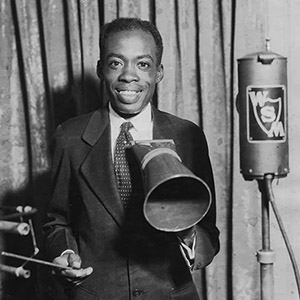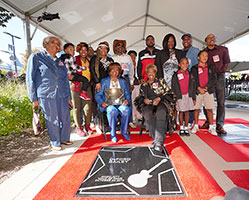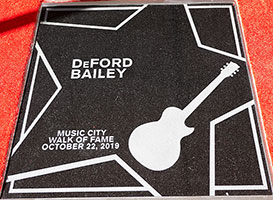DeFord Bailey
- First African American member of the Grand Ole Opry
- Billed as "The Harmonica Wizard"
- Member of the Country Music Hall of Fame
DeFord Bailey, the Grand Ole Opry's first African American member, made his first documented Opry appearance on June 19, 1926. Bailey, billed as "The Harmonica Wizard," was a regular on the show until 1941, and his signature tune, "Pan American Blues," often opened the broadcasts. His music is intertwined with the storied history of the Grand Ole Opry for it was after one of his performances that WSM program director George D. Hay proclaimed, "For the past hour we have been listening to music taken largely from Grand Opera but from now on we will present the Grand Ole Opry." Bailey was born in 1899 into a farming family in rural Smith County, Tenn., where he was raised by his aunt and uncle. He had polio at age three, which stunted his growth. He began learning harmonica as a young child and grew up playing what he called "black hillbilly music," a tradition of secular string-band music shared by rural black and white musicians alike. He moved to Nashville in 1918, where he learned jazz, blues, and pop songs, becoming a bridge between rural folk music and the modern world of commercial popular music. His harmonica playing caught the attention of the music industry, and he was soon playing on a national stage through Opry appearances and recordings for Brunswick and Victor Records. He was inducted into the Country Music Hall of Fame. (Courtesy of the Grand Ole Opry and Country Music Hall of Fame)
Inducted into the Music City Walk of Fame on October 22, 2019.




